Below is a guest post from Phillip MacDonald (pictured below), who is going into his second year at UNC’s School of Information Science’s Master of Science in Library Science (SILS) program. Before attending SILS, Phillip received a masters in Folklore at the UNC and started his interest in archives and special collection by working on the Frank Clyde Brown’s field recordings at Duke Libraries. After graduation, Phillip hopes to work in archives and special collections. Over this past summer, Phillip helped process over 1,000 videotapes found in SFC’s Highlander Research and Education Center Collection (#20361) for his program’s field experience. At SILS, students can gain professional practice in an information organization for class credit. Phillip hoped to specifically work with audiovisual in an archival setting for his field experience and found working at SFC over the summer as “an ideal place to do so.”

The Southern Folklife Collection has been housing analog audio discs from the Highlander Research and Education Center since the early 2000s. These materials include acetate discs and transcription discs of radio programs, recorded songs, and voices of leaders from the civil rights movement, including Esau Jenkins, Septima Clark, Rosa Parks, Miles Horton, and Zilphia Horton. Thanks to a grant from the Andrew W. Mellon Foundation and the research interests of past Wilson research fellow, Genevieve Hay, many of the acetate discs are accessible and streaming on the Highlander Research and Education Center Collection (#20361) finding aid.
In 1971 the Highlander Folk School was re-chartered as the Highlander Research and Education Center. Before the name change, Highlander was best known as an institution for working towards labor union mobilization and Citizenship Schools to help African Americans gain access to voting before the Voting Rights Act of 1965. The Highlander Folk School also contributed to music’s pivotal role in the civil rights movement. In the years after the renaming, the center continued to focus on labor organizing. In Appalachia, the center focused on the anti-strip mining and worker safety. On a global scale, Highlander worked on environmental and labor issues around the world. A vast amount of these efforts is documented in the new addition of Highlander Research and Education Center videos.
In March of this year, arsonists set the center’s main office building ablaze. The center later announced on their Facebook page that they found a symbol associated with the white power movement in the parking lot next to the rubble of the building. Soon after the fire, the center contacted Steve Weiss, SFC’s curator, to pick up more audiovisual materials as soon as possible. Weiss and former SFC Assistant, Aaron Smithers, arrived the next day.
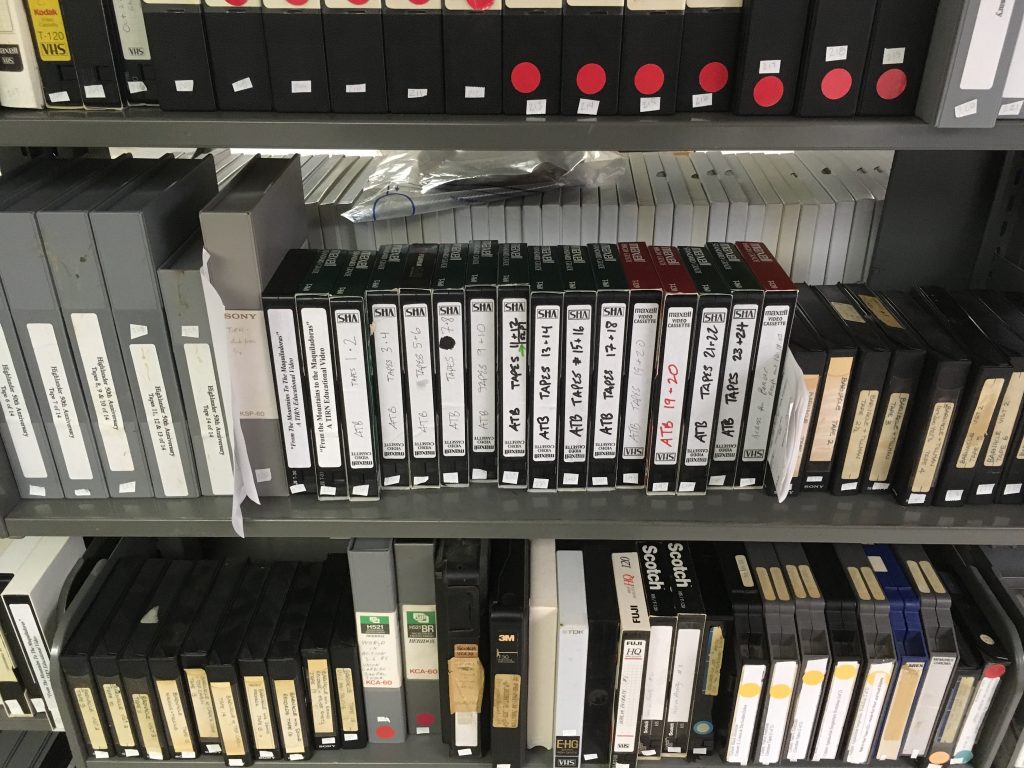
This new addition to the Highlander’s collection consists of over 1,000 items, including 16mm films and various analog audio and video formats, but the bulk of the incoming items were videos used at the center’s library. The video addition contains materials that speak to the center’s labor support efforts through workshops and conferences on the Bhopal disaster, North Carolina farmworkers, environmental health, furniture workers, women’s health and safety, community-based economic development, and many more.
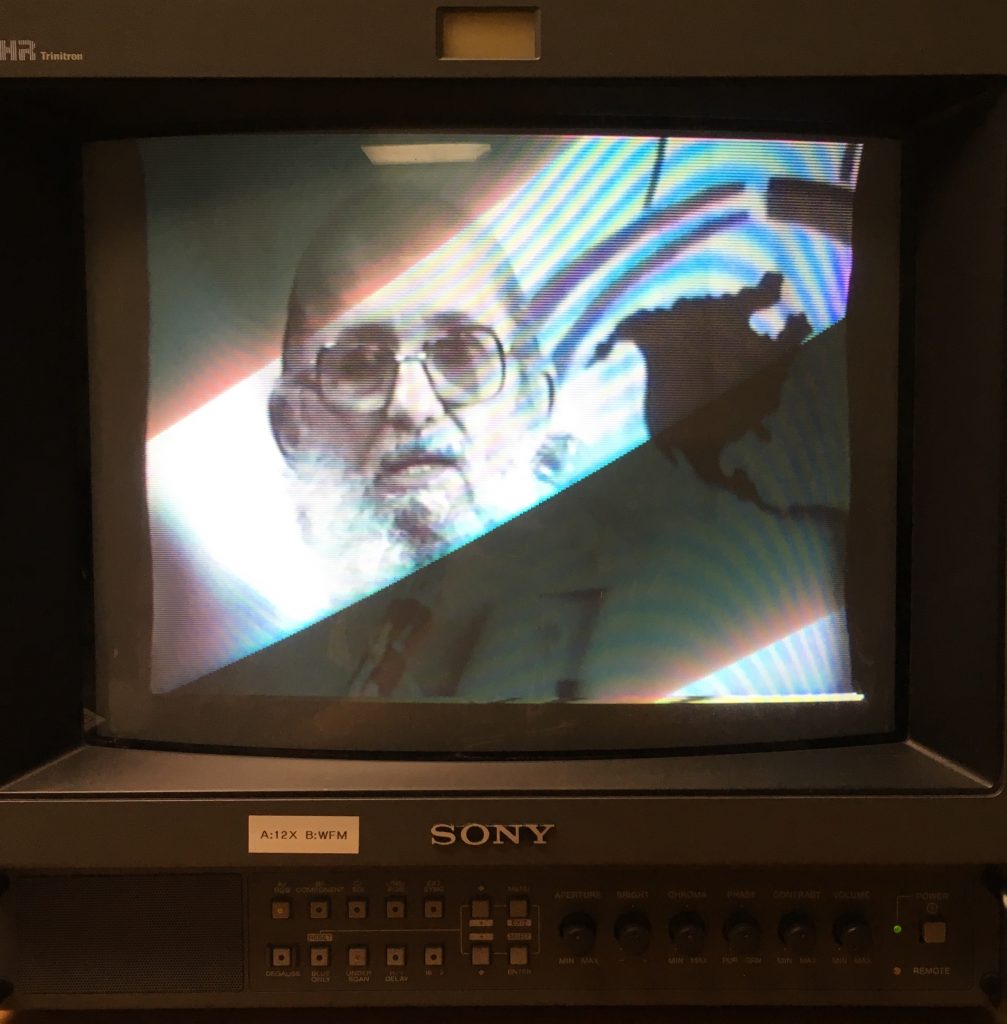
In regards to the center’s efforts on labor and social justice organizing throughout Latin America, the addition contains numerous Spanish and bilingual materials dealing with Chiapas textiles, political unrest, higher wages, the Aguas Blancas massacre, and more. Additionally, this video collection documents the Highlander Research and Education Center’s history- containing raw and edited footage of the center’s numerous workshops, their 50th and 75th-anniversary celebrations, interviews with Myles Horton, and his memorial.
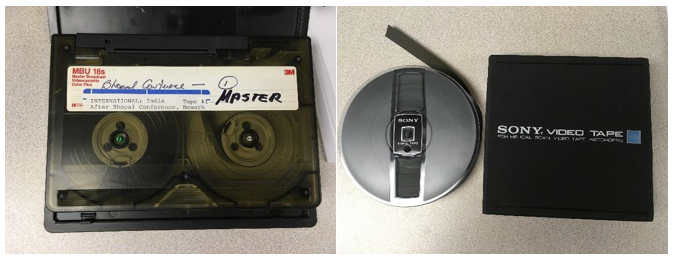
This addition also represents numerous video formats. The most ubiquitous video format is probably VHS, which is here in abundance, but the addition also contains U-Matic, U-Matic SP, DVCAM, and 1/2 inch open reel video. This variety of video formats document how long the Highlander Center has been creating media. Overall this collection contains a plethora of information on social justice and labor organizing from the latter half of the twentieth century.
~~~~~~~~~~~~~~~~~~~~~
THANK YOU Phillip for your many contributions in processing the videotapes found in the Highlander Research and Education Center Collection – your passion and hard work will undoubtedly aid researchers for years to come. And a special shout out to AV Assistant, Melanie Meents, who also assisted with the project. She’s currently hard at work processing additional audio and film elements found in the collection. Both Phillip and Melanie’s inventories of AV materials will soon be live on the Highlander Research and Education Center Collection (#20361) finding aid – stay tuned!
Tag: audiovisual preservation
Joan Fenton and Documenting Southern Tall Tales
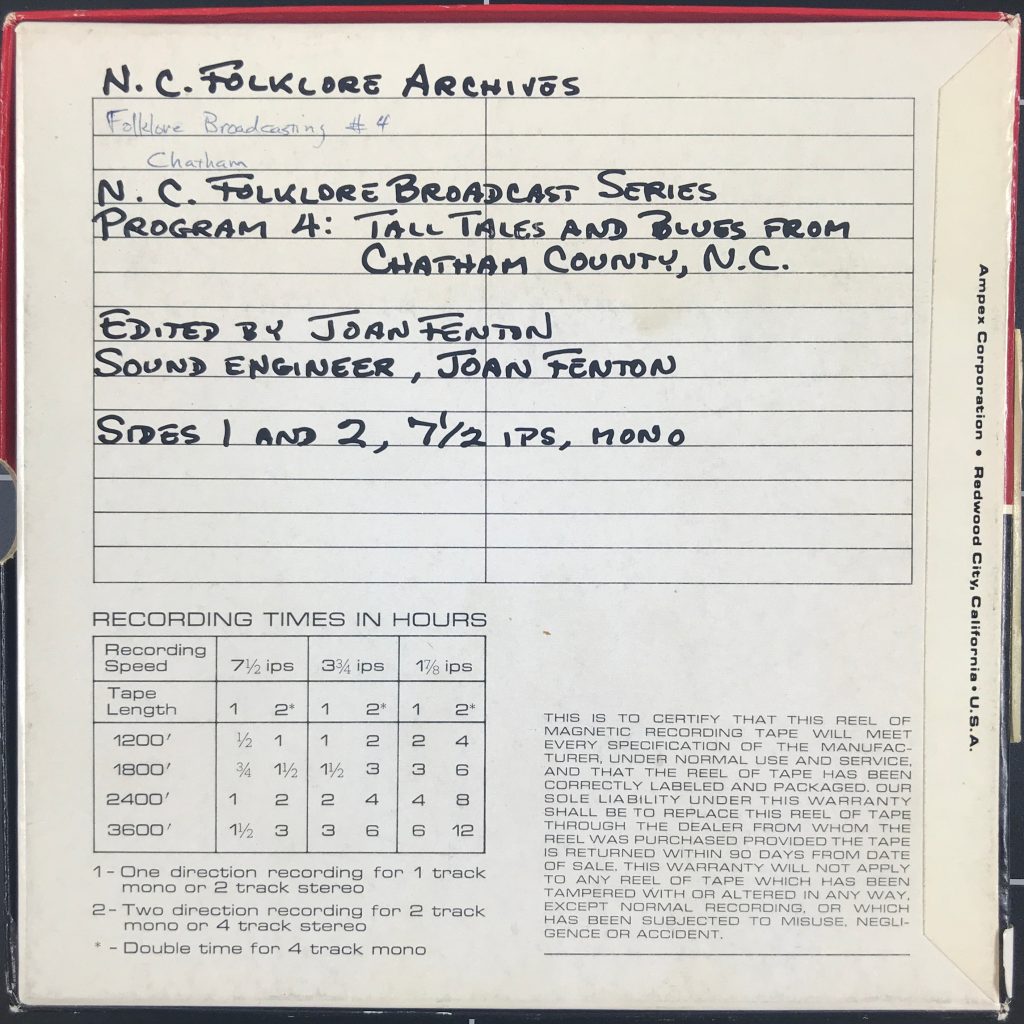
Joan Fenton was a folklorist and performer who earned a master’s degree in folklore from the University of North Carolina Chapel Hill. The sound recordings in this collection include interviews, oral histories, songs, and tall tales from artists and musicians throughout North Carolina, South Carolina, West Virginia, and Louisiana. She also recorded a gospel group at an African American church service near Princeton, West Virginia. Those recordings include sermons and testimonies from members of the congregation. Thanks to our generous grant from the Andrew W. Mellon Foundation, the audio items in the Fenton collection are available and streaming online from the finding aid.
Fenton wrote the thesis for her master’s on Howard Cotten, a black tall-tale teller from North Carolina. These recordings include songs, tales, and interviews with Mr. Cotten and others like Laura Lea, a quilter from Chatham County, NC and Cotton’s friend and cousin, Willie Brooks. In the interviews, Cotten sings and tells stories about hitchhiking, ghosts, possum hunting, talking dogs, seeing a train for the first time and more (FT-20015/890-908).
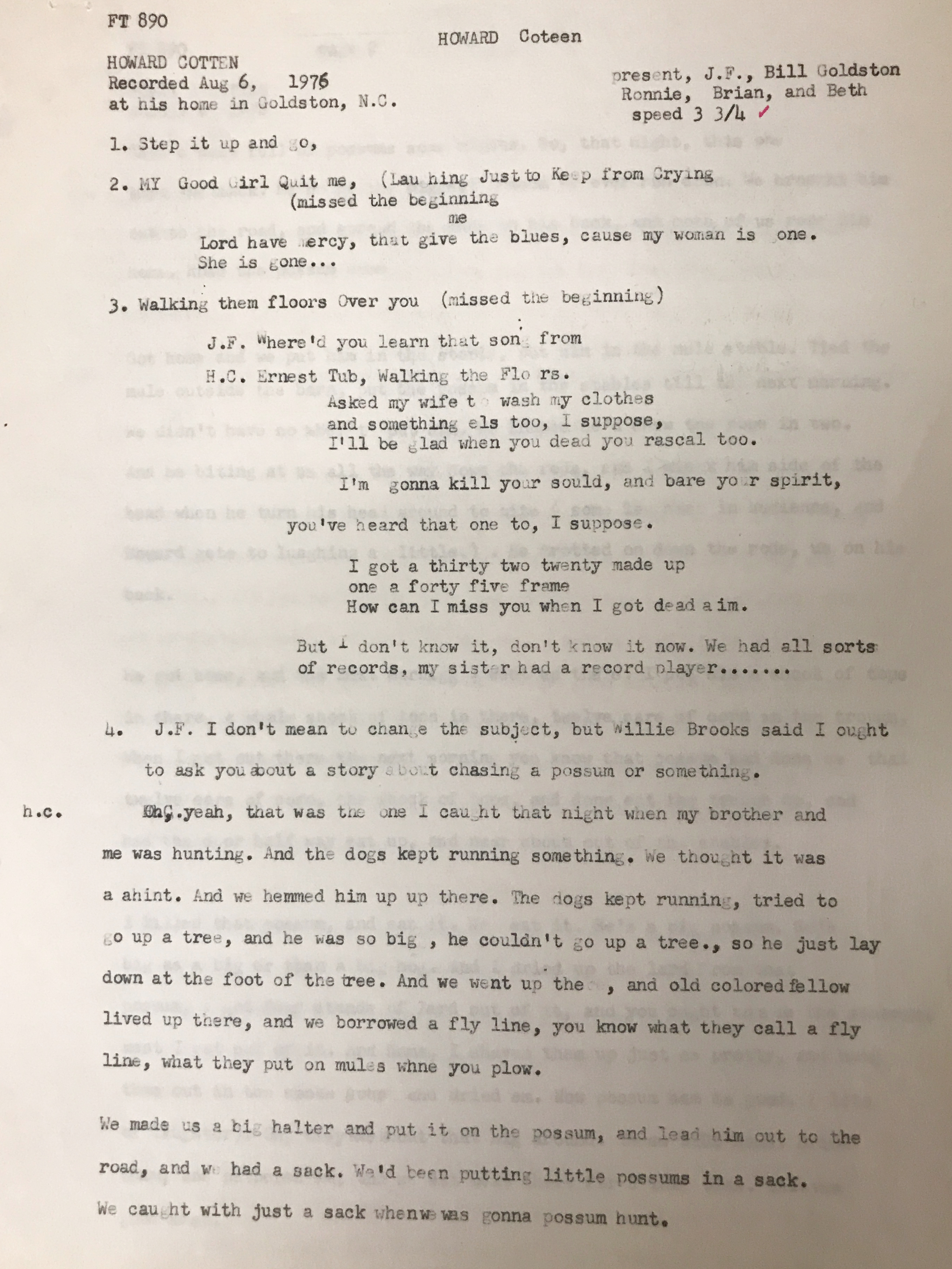
The above interview is streaming through the finding aid.
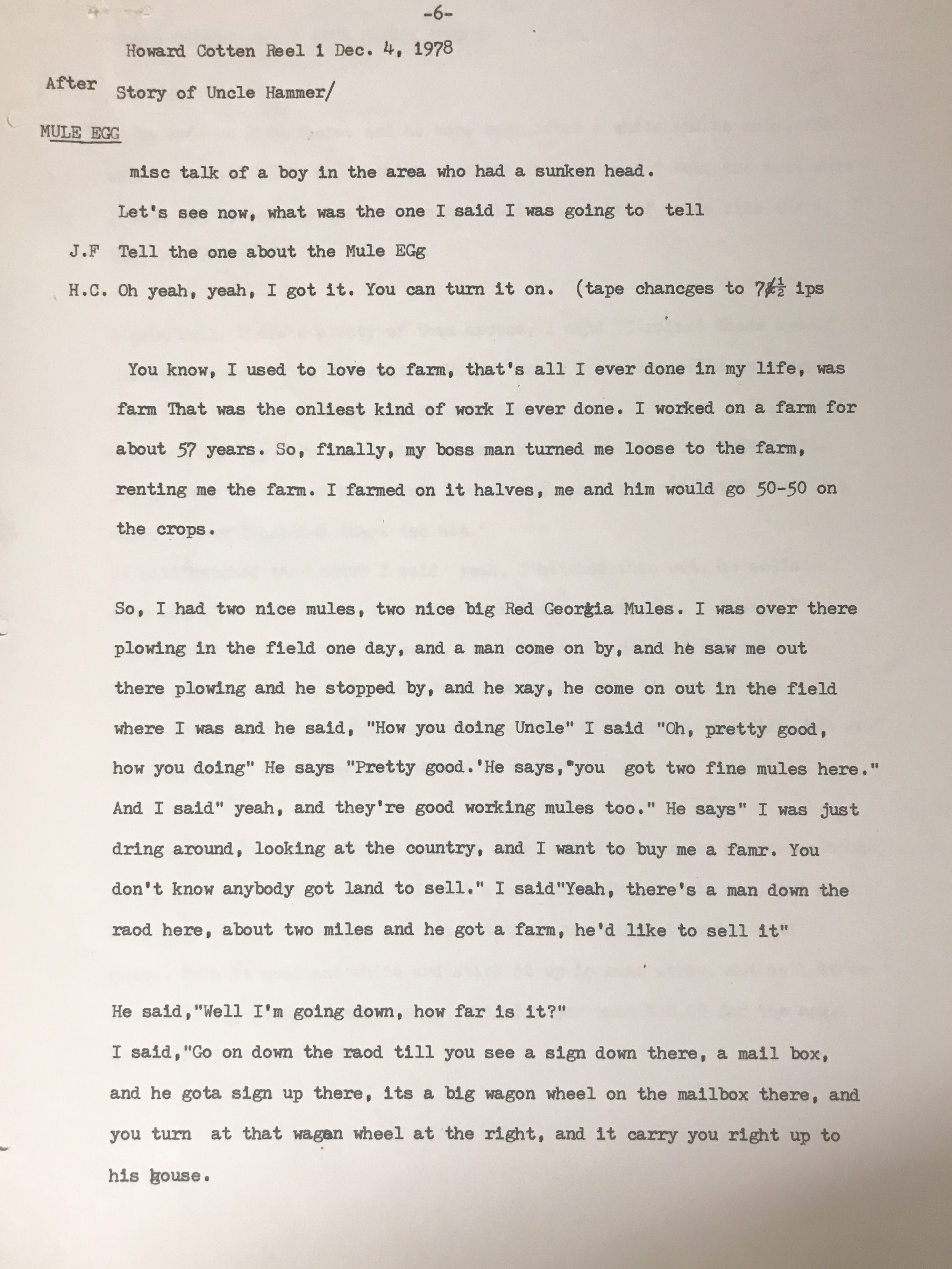
Fenton was the editor and sound engineer on an episode of the UNC Folklore Broadcast featuring a recording of Howard Cotten and Willie Brooks telling tall tales or lies, as Fenton calls them in the introduction to the broadcast, along with blues songs and additional explanation and commentary in between songs and stories.
Some of my favorite audio recordings in the collection are from the John Henry Folk Festival in 1978. She gathered many interviews from this festival with musicians and attendees. She asks questions about the folk festival, why people attend this specific festival, what the blues mean to them, the importance of gospel music at a festival such as the John Henry festival, and many others. The answers she gets to her questions are part of larger conversations that are still relevant today. Some of the folks interviewed include Sparky Rucker, Ron Wilkerson, Hazel Dickens, Phyllis Boren, The Badgett Sisters, and Pigmeat Jarrett.
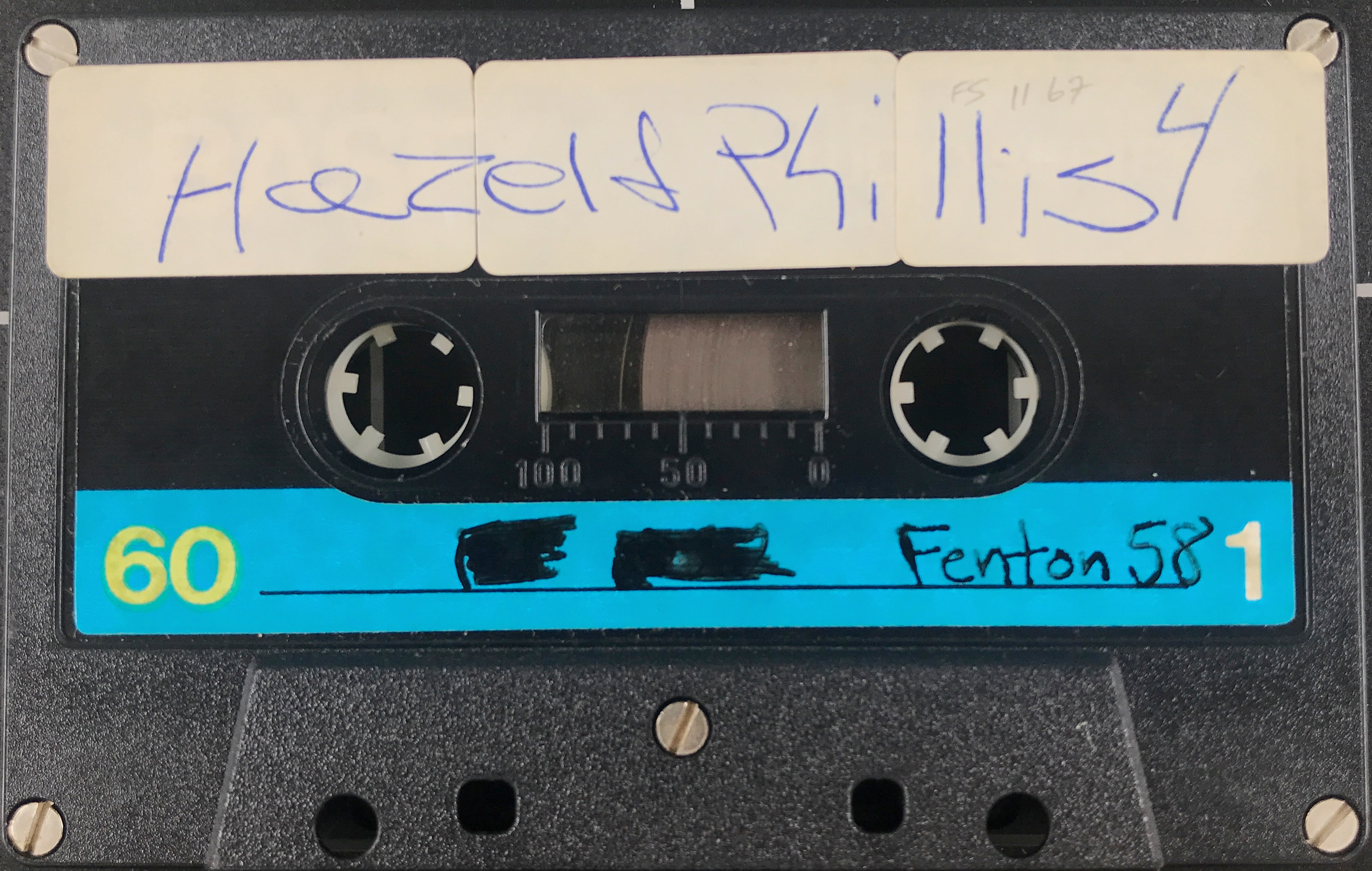
Finally, Fenton took part in video documentation of blues musicians including videos of Willie Trice. Fenton is described as recording the videos. They are also accessible and streaming in the Southern Folklife Collection Moving Image Materials finding aid. (VOR-30002/110-111).
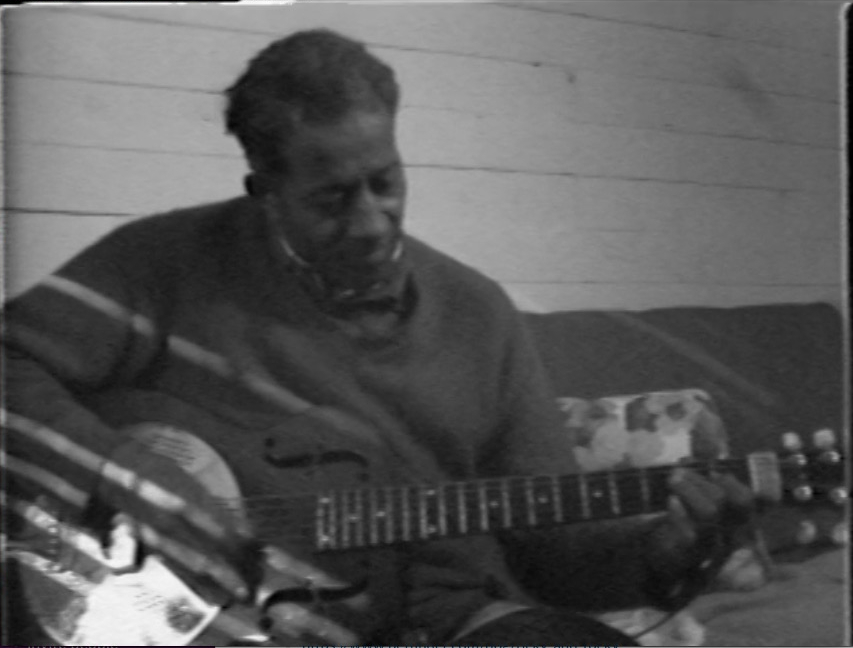
Fenton resides in Charlottesville, VA where she owns 9 retail stores. She is one of the organizers of Blues Week at the Augusta Heritage Workshop in Elkins, WV.
